


A viable democracy requires more than the implementation of the key institutions of government. Rather, an accountable and efficient government is embedded in a complex web of interdependent conditions that require considerable time and effort to develop, not least social accountability – that is the ability of citizens to hold their government accountable. From this point of view civic engagement involves more than just voting, but also participation in civil society organizations and community policy making.
‘We the Citizensof Africa’ is AU Watch’s online and offline platform that debates and examines statelessness, nationality and citizenship issues is Africa. The Forum tries to make sense of citizenship laws in Africa that are often arbitrary, discriminatory, and contradictory from state to state, and recommends ways that African countries can bring their citizenship laws in line with global norms and the African spirit of Ubuntu.
We believe that Africa’s borderless future, looking forward to 2063, is best served by having an informed and involved citizenry that has access to a wide range of sources of news and views and an open and vibrant environment in which to share and to debate ideas and opinions. ‘We the Citizensof Africa’ was set up to help create such an environment, and that is what we continue to work towards.

“Citizenship” is a term commonly used in the socialsciences to indicate different types of belonging to a political community and the rights that such belonging brings with it.Citizenship in law is defined somewhat differently, where the legal bond between the state and the individual is at the core of its meaning.
In the 1955 Nottebohmcase, the International Court of Justice said about citizenship:
“According to the practice of States, to arbitral and judicial decisions and to the opinion of writers, nationality is a legal bond having as its basis a social fact of attachment, a genuine connection of existence, interest and sentiments, together with the existence of reciprocal rights and duties.”
For the purposes of consistency AU Watch uses citizenship and nationality interchangeably as in contemporary usage to refer to the legal relationship between an individual and a state, in which the state recognises and guarantees the individual’s
rights.
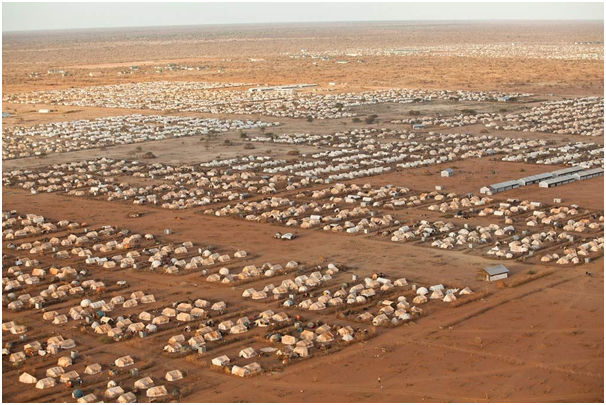 Governments establish who their nationals are. This makes them responsible for legal and policy reforms that are necessary to effectively address statelessness. But all of us – the AU, states, civil society and stateless people all have roles to play in supporting their efforts.
Governments establish who their nationals are. This makes them responsible for legal and policy reforms that are necessary to effectively address statelessness. But all of us – the AU, states, civil society and stateless people all have roles to play in supporting their efforts.
To make a difference, we must work together. Each of the four areas of our work on statelessness – identification, prevention, reduction and protection – overlap with the expertise of other international organizations and NGOs, and we rely on the local knowledge and expertise of civil society groups, national human rights institutions, academics and legal associations. Their contribution to our work allows us to prepare and recommend the most effective solutions.
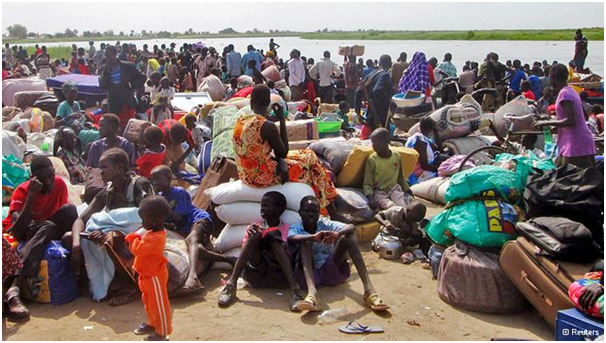 1. Gaps in nationality laws are a major cause of statelessness. Every country has laws which establish under what circumstances someone acquires nationality or can have it withdrawn. If these laws are not carefully written and correctly applied, some people can be excluded and left stateless. An example is children who are of unknown parentage in a country where nationality is acquired based on descent from a national. Fortunately, most nationality laws recognize them as nationals of the state in which they are found.
1. Gaps in nationality laws are a major cause of statelessness. Every country has laws which establish under what circumstances someone acquires nationality or can have it withdrawn. If these laws are not carefully written and correctly applied, some people can be excluded and left stateless. An example is children who are of unknown parentage in a country where nationality is acquired based on descent from a national. Fortunately, most nationality laws recognize them as nationals of the state in which they are found.
2. Another factor that can make matters complicated is when people move from the countries where they were born. A child born in a foreign country can risk becoming stateless if that country does not permit nationality based on birth alone and if the country of origin does not allow a parent to pass on nationality through family ties. Additionally, the rules setting out who can and who cannot pass on their nationality are sometimes discriminatory. The laws in 27 countries do not let women pass on their nationality, while some countries limit citizenship to people of certain races and ethnicities.
3. Another important reason is the emergence of new states and changes in borders. In many cases, specific groups can be left without a nationality as a result and, even where new countries allow nationality for all, ethnic, racial and religious minorities frequently have trouble proving their link to the country. In countries where nationality is only acquired by descent from a national, statelessness will be passed on to the next generation.
4. Finally, statelessness can also be caused by loss or deprivation of nationality. In some countries, citizens can lose their nationality simply from having lived outside their country for a long period of time. States can also deprive citizens of their nationality through changes in law that leave whole populations stateless, using discriminatory criteria like ethnicity or race.
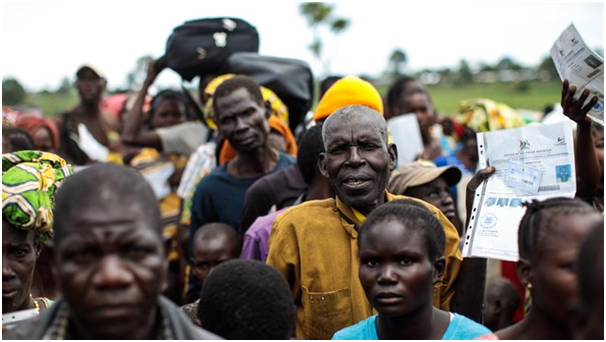 • You may have heard of something called Agenda 2063. Well, for the purposes of nationality discussions, it says that all of us Africans, though culturally and linguistically different have a singular destination – a United States of Africa.
• You may have heard of something called Agenda 2063. Well, for the purposes of nationality discussions, it says that all of us Africans, though culturally and linguistically different have a singular destination – a United States of Africa.
Stateless persons are denied the right to nationality. They are extremely vulnerable to discrimination and persecution. They often lack official documentation, which prevents them from accessing basic services such as education and healthcare.
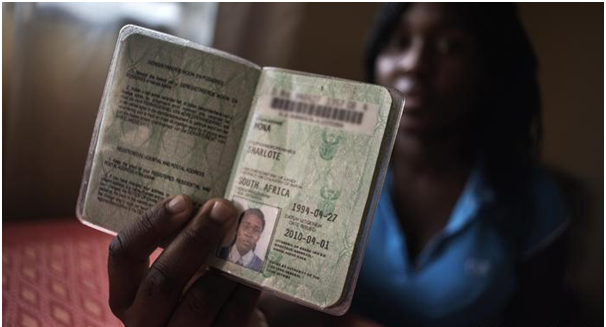 However, laws and practices governing citizenship in too many African countrieseffectively leave hundreds of thousands of people without a nationality. Thesestateless Africans are among the continent’s most vulnerable populations: theycan neither vote nor stand for office; they cannot enrol their children in school, travel freely, or own property; they cannot work for the government; they areexposed to human rights abuses.
However, laws and practices governing citizenship in too many African countrieseffectively leave hundreds of thousands of people without a nationality. Thesestateless Africans are among the continent’s most vulnerable populations: theycan neither vote nor stand for office; they cannot enrol their children in school, travel freely, or own property; they cannot work for the government; they areexposed to human rights abuses.
• Statelessness exacerbates and underlies intercommunal, interethnic, and interracial tensions in many regions of the continent. Statelessness also remains a significant but poorly documented problem in Africa. The stateless population overlaps with a larger undocumented population whose nationality status is unclear.
• Did you know that only few African countries provide for an explicit right to a nationality? Moreover, though the laws in more than half of the continent’s countries grant children born on their soil the right to citizenship at birth or the right to claim citizenship when they reach the age of majority, the observance of these laws is often lacking.
There are over 30 million migrants in Africa: that includes refugees, internally displaced persons and returnees
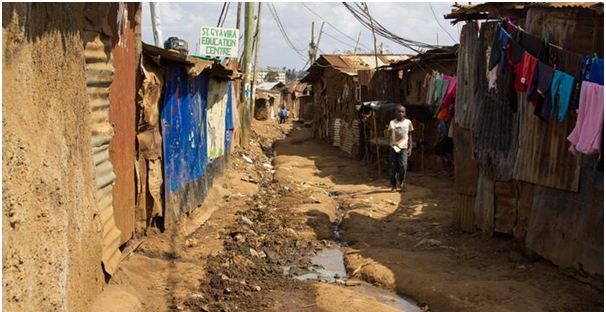
 In most African states, nationality laws are based on the concepts of jus soli, or ‘right of soil,’ and jus sanguinis, or ‘right of blood.’ Under the former, the person can obtain citizenship if they are born in that particular country, while the latter bases a person’s nationality on the origin of their parents. In many cases, states which primarily base their nationality laws on the principle of jus soli prevent populations who are away from their ‘historic’ homeland to apply for citizenship of that country, while at the same time being denied nationality of their country of residence due to laws based on jus sanguinis.
In most African states, nationality laws are based on the concepts of jus soli, or ‘right of soil,’ and jus sanguinis, or ‘right of blood.’ Under the former, the person can obtain citizenship if they are born in that particular country, while the latter bases a person’s nationality on the origin of their parents. In many cases, states which primarily base their nationality laws on the principle of jus soli prevent populations who are away from their ‘historic’ homeland to apply for citizenship of that country, while at the same time being denied nationality of their country of residence due to laws based on jus sanguinis.
Perhaps the best-known example of an ongoing stateless crisis in Africa due in part to complicated citizenship laws is in Ivory Coast. The estimated stateless population is currently 700,000. The majority of these people are migrants of Burkinabe descent and were not considered eligible for Ivorian nationality following the country’s independence in 1960. A further constitutional amendment in 1972, which prohibited foreigners who had not already registered from becoming citizens, effectively left thousands of families and future generations stateless.
We the Citizens of Africa, is committed to address nationality citizenship issues and statelessness in Africa. We believe that all human beings have a right to a nationality and that those who lack nationality altogether – stateless persons – are entitled to full protection of their human rights. We are dedicated to strengthening the often-unheard voice of stateless persons in Africa, and to advocate for full respect of their human rights. We strengthen and expand rights-based advocacy as well as to promote skilled legal aid for stateless people and refugees through increasing efficiency, effectiveness, and raising standards of professionalism in the specialty of legal aid for refugees. We aim to reach our goals by conducting and supporting legal and policy development, awareness-raising and capacity building activities.

The theme for the 32nd AU Heads of State and Government Summit in February 2019 was ‘The Year of Refugees, Returnees and IDPs (internally displaced persons): Towards Durable Solutions to Forced Displacement in Africa.’ Conspicuously absent from the talks, however, was a concrete plan to address the issue of statelessness.
The starting point for any conversation about nationality in Africa is the adoption in April 2013, by the African Commission on Human and Peoples’ Rights of a Resolution entrusting its Special Rapporteur on Refugees, Asylum Seekers and Internally Displaced Persons in Africa with the conduct and drafting of a study on the right to nationality on the continent.This decision was actually the final stage in a multifaceted thought process taking place on the continent regarding the right to nationality.
The African Union’s Migration Policy Framework adopted in 2006 included among its other recommendations that AU Member States should ‘incorporate key guidelines as recommended in the 1954 and 1961 Statelessness Conventions’, and ‘develop national legislative and policy frameworks to counter statelessness, particularly in cases of long-term residents, by reforming citizenship legislation and/or granting rights similar to those enjoyed by foreigners residing in the country’.
Well, not much has been done.
 Our platform has the intention to raise awareness with regards to citizenship, nationality and statelessness issues in Africa and to bring all the relevant stakeholders in the field together: representatives of Member States, African Union, Pan-African Parliament, African agencies, international organisations, and NGOs. The first practical objective of this platform was to determine the state of play of statelessness in Africa by an African organisation.We collect and analyse information on nationality, citizenship and statelessness in Africa.
Our platform has the intention to raise awareness with regards to citizenship, nationality and statelessness issues in Africa and to bring all the relevant stakeholders in the field together: representatives of Member States, African Union, Pan-African Parliament, African agencies, international organisations, and NGOs. The first practical objective of this platform was to determine the state of play of statelessness in Africa by an African organisation.We collect and analyse information on nationality, citizenship and statelessness in Africa.
Raising Awareness and increase visibility of statelessness: We highlight the human rights situation of stateless persons at various international forums and we regularly engage with the African Union and the United Nations High Commissioner for Refugees, key treaty bodies and special procedures on the detention of stateless persons and other forms of discrimination.
We work with other units of AU Watch to conduct research and analysis on various aspects of citizenship and nationality rights.
We promote information exchange between refugee legal aid advisors, through facilitation connections and providing avenues for contact. We hope our resources, particularly those outside of our organisation, are helpful. It is important that you check it meets your needs. Please contact us if you find problems.
Collaboration: We strengthen civil society movements working to combat discrimination and promote equality. To do this, we support citizenships movements and help to develop and implement advocacy strategies in a wide range of African countries.
Protection: We fight statelessness and work to protect the most vulnerable by providing legal services to the most marginalised. Through strategic partnerships we provide accessible legal services to victims of the harsh realities of statelessness and discrimination. To do this, we use our expertise in designing legal service models and rolling them out with partners. Where necessary we support clients directly in taking on litigation.
Strategic Litigation
Through strategic litigation we help to raise important legal questions on equality and non-discrimination. We help our partners in different African countries identify opportunities for strategic litigation and to build cases, and where necessary, we journey with claimants to regional or international courts. We use our expertise in equality and non-discrimination to provide amicus curiae briefs to courts and memoranda to lawyers.
We are keen to provide technical assistance to NGOs and lawyers with strategic statelessness, citizenship and nationality cases. If you are seeking support on such cases, please contact us through [email protected] and we will see how we can help.
Advocacy: Advocacy helps to transform policies and services that affect displaced people. We host online debates, and forums to raise awareness of issues concerning statelessness, citizenship and nationality.Our international advocacy uses procedures to subject AU Member states to scrutiny. In order to do this effectively we make regular submissions to the African Commission on Human and Peoples’ Rights Council and to UN Treaty Bodies, providing evidence on patterns of discrimination and an analysis of nationality laws and policies in different African countries.
We provide practical, financial and strategic support to our partners at the domestic level. Together we engage directly with national governments and parliaments to promote improved legal and policy frameworks related to citizenship and nationality laws and practice.
Research and Analysis
We place a high value on research and its impact on advancing the debates on citizenship, nationality and statelessness. Our research enhances the discourse on citizenship and builds the evidence base on discriminatory practices. When backed withsubstantive evidence, our advocacy, litigation and supporting citizenship movements are delivered effectively. Our research equips equality activists with the necessary tools to expose discrimination and hold state and non-state actors to account.
Regional Needs Assessment: A blueprint for planning and action during times of crisis.Our approach to developing resources is collaborative. At international and regional levels we consult with thought leaders from academic, legal, governmental and non-governmental spheres to develop resources. At the national level, we work with local partners to assess patterns of discrimination in their countries and to develop an analysis of the country’s legal and policy framework on equality.
Safeguarding Individuals: We work hard to help millions of people all over Africa rebuild broken lives
Health: We strive to ensure that all people forced to flee have access to life-saving healthcare.
Supporting training on statelessness: We support organisations to deliver training around the world to advocate against statelessness.
Developing networks: We believe that together in partnership we can achieve better results than through fragmented approaches. To enhance collaboration against statelessness, we are part of key various networks.
 Achieving universal access to education is no longer sufficient — it’s also necessary to provide all students with a quality education, one that successfully prepares them for life in the 21st century.
Achieving universal access to education is no longer sufficient — it’s also necessary to provide all students with a quality education, one that successfully prepares them for life in the 21st century.
The UN’s Global Education First Initiative notes “It is not enough for education to produce individuals who can read, write and count. Education must fully assume its central role in helping people to forge more just, peaceful, tolerant and inclusive societies.” According to the UN, global citizenship education provides the understanding, skills, and values students need to cooperate in resolving the interconnected challenges of the 21st century, including climate change, conflict, poverty, hunger, and issues of equity and sustainability. These same educational outcomes prepare students to be successful in the workplace of the 21st century as well. What if we can instruct into our children, from birth, the ubuntu philosophy that statelessness is crime? What if we are able to inform all the children in Africa that, though different, we are all the same – that our eventual destination is 2063? What if we are able to inculcate into our children, that at the end of the day our present day borders are meaningless and what ONLY is that we are all Africans?
Our ‘AU Studies’ curriculum encourages children to be academically inquisitive and to take responsibility and initiative as part of ‘Agenda 2063: The Africa We Want.’ AGENDA 2063 is Africa’s blueprint and Master Plan for transforming Africa into the global powerhouse of the future. It is the continent’s strategic framework that aims to deliver on its goal for inclusive and sustainable development and a concrete manifestation of the pan-African drive for unity, self-determination, freedom, progress and collective prosperity pursued under Pan-Africanism and African Renaissance.
Current Project
Coordination with local NGOs the drawing up and implementation of a mapping exercise identifying vulnerable stateless persons in the AU Member States, as a first step and then expand this action to other stateless individuals. This action will allow AU Watch and its collaborating NGOs to directly address the competent authorities in the respective Member States in order to solve the legal situation of these identified individuals.
In particular, citizenship education through our AU Studies programme will foster pupils’ keen awareness and understanding of democracy, human rights, governance, anticorruption and how laws are made and upheld. Teaching will equip pupils with the skills and knowledge to explore political and social issues critically, to weigh evidence, debate and make reasoned arguments. It will also prepare pupils to take their place in society as responsible citizens, manage their money well and make sound financial decisions.
Want to know More? Click here.